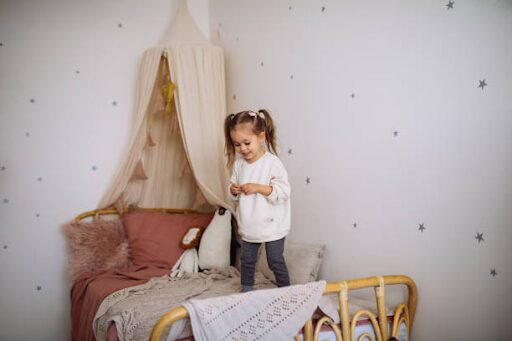Things You Should Know About Bamboo Sheets
Bamboo sheets are typically seen as environmentally friendly since the bamboo plant grows swiftly and rarely requires pesticides, fertilizers, or irrigation. While the raw material is environmentally beneficial, the viscose process employs chemicals to break down bamboo pulp so that cellulose may be extracted and spun into fibers. The viscose technique is used in several bamboo fabrics, including rayon, lyocell, and modal.
Types of Bamboo Sheets:
When shopping for bamboo sheets, seek labels that read 100 percent bamboo viscose, rayon manufactured from bamboo, or 100 percent bamboo linen just like you find when shopping from Ecoy. Here below listed are the five types of bamboo sheets and their properties:
- Viscose
The bamboo plant is processed chemically here, allowing the company to extract and turn it into woven cloth. When making bamboo rayon fabric, some firms employ more chemicals than others. It is the least environmentally favorable alternative since the chemical residual waste is thrown off in environmentally harmful methods.
It’s worth noting that some bamboo rayon producers use effluent treatment techniques rather than using zinc sulfate or chlorine-containing bleach. This reduces the negative consequences of the production process. However, if the sheets are decomposed in a viscose solution, they will not provide the same benefits as Bamboo Lyocell, which retains most of the plant’s inherent properties.
- Lyocell
Bamboo Lyocell Sheets are a term used by manufacturers to describe authentic bamboo sheets. This implies they’re made in such a way that the fiber’s key properties and advantages are preserved. Bamboo Lyocell sheets are moisture-wicking, antibacterial, hypoallergenic, and temperature-regulating.
The Lyocell technique uses a non-toxic solvent to dissolve raw bamboo. The spent solution is then recycled because it creates non-hazardous effluent. Bamboo Lyocell is thus more durable, environmentally friendly, and safe than rayon or viscose.
- Modal
It has a silkier hand, making it an excellent choice for nightwear that feels delicious and smooth on the skin. Temperature – Modal outperforms bamboo in terms of breathability. When compared to bamboo, it is shown to be more breathable and moisture-wicking, yet both textiles are more absorbent than cotton.
- Linen
Bamboo linen sheets are extremely sustainable since they are produced in the same way as hemp and flax. The only issue with linen is that it is quite demanding. To keep linen sheets smooth, iron them regularly.
- Cotton Blend, Polyester, Microfiber
You’ll receive a more durable, less expensive cloth at the cost of softness and comfort. Look to linen for long-lasting sheets. Bamboo sheets have a velvety smoothness that rivals that of a brilliant blazing star. Buy Viscose or Rayon which is 100 percent bamboo. It’s quite soft and comfy. 100 percent bamboo sheets are your best choice if you enjoy sleeping and want to enjoy the unrivaled softness every time you crawl into bed.
How to Identify the Best Bamboo Sheets?
- If you prefer softness over smoothness, use a Twill weave. Twill is somewhat smoother than cotton, but not quite as smooth as sateen.
- If you are looking for something that feels like silk but isn’t as slick and suffocating, use a Sateen weave. All you have to do now is be very careful with the sheets.
- The one thread over, one thread under pattern used in percale weave produces a crisp, lightweight cloth with a matte finish. Percale sheets are popular among hot sleepers because of their breathability, but they are also prone to wrinkling.
- These environmentally friendly blankets are extremely long-lasting. When properly cared for, sheets may last 5-6 years if you just use one pair.
- Disqualify sheets based on their thread count. You’ll need more evidence to identify which is better between 300 and 400 thread count, however between 300 and 1500, you may confidently say the 300 is superior based on the aforementioned facts.
- Bamboo sheets are rather costly. There is no getting about it; manufacturers charge a premium for high-quality sheets, and if you want to invest in quality, bamboo sheets then go for it irrespective of the high price.
Final Verdict
Bamboo sheets are often quite durable when properly cared for. Bamboo sheets also keep dye better, resulting in more vibrant hues. Go for 100% viscose for the best experience with bamboo sheets because of their silky smooth texture and cooling properties.





